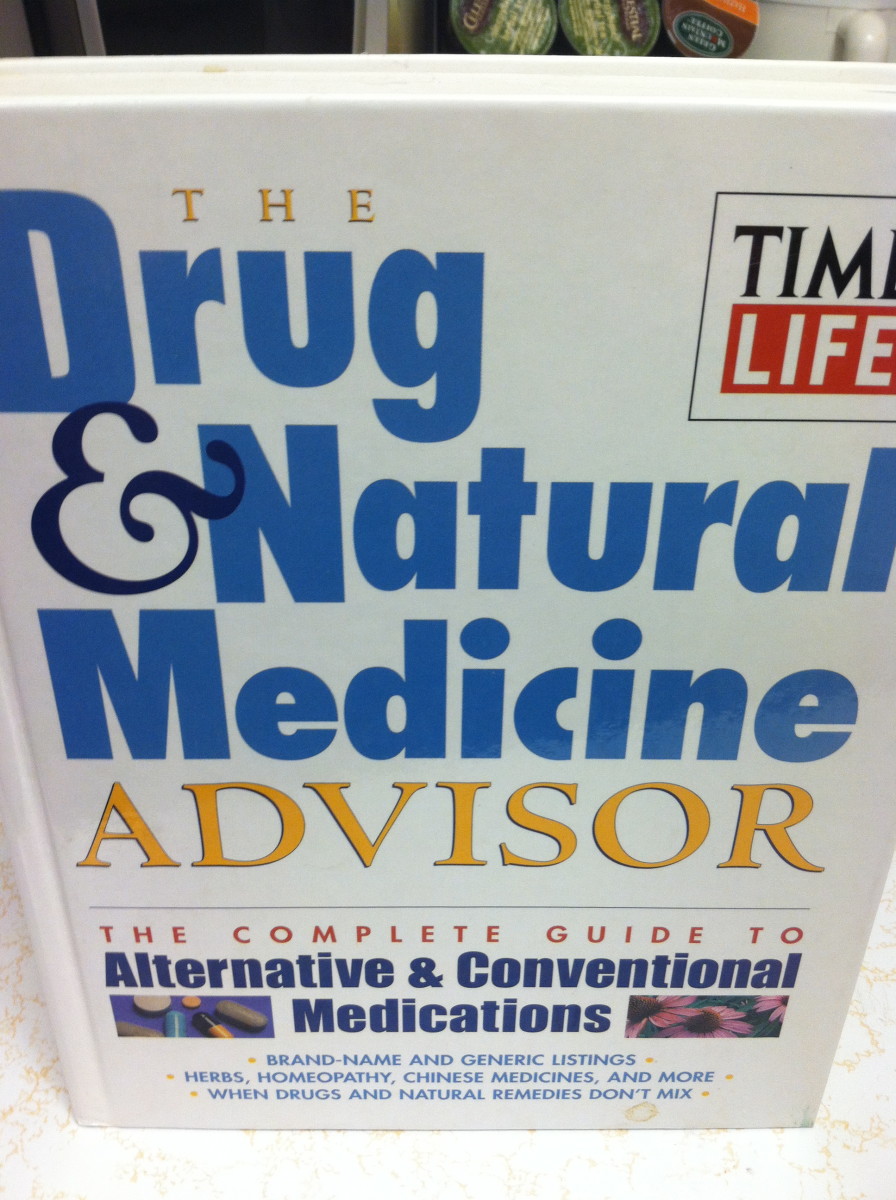How To Navigate The Medical Merry-Go-Round: Becoming Your Own Health Advocate

Welcome to the ride
Chances are, if you've ever visited a health care professional, you've already hopped on the Medical Merry-Go-Round that our health care system has become. Once you're on, it becomes a continuous, mind-boggling, often frustrating experience, especially if you were taught from your earliest days to "do everything the doctor orders.” I'm not advocating jumping off the merry-go-round, for that could prove hazardous to your health; I'm merely suggesting that you might feel better if you take some responsibility for navigating that oft-intimidating carousel.
Knowledge Really Is Power
The first and most important step in taking responsibility is to BE INFORMED. If you've been diagnosed with a disease, research that disease. This might include meeting your friends at the local diner for a session of trading health stories over breakfast, but this is only a small part of your research. (It does qualify as a misery-loves-company pick-me-up, though, and probably will convince you that you are not alone in your frustration with our health care system.) Make sure to consult as many valid web sites (e.g., Mayo Clinic) as possible, and write down any pertinent information you gather (symptoms, treatment, etc.). If you don't feel fully informed or feel that you have been misdiagnosed, consult another physician for a second opinion.
My husband, for example, was told that he’d had a silent heart attack because one of his arteries was 100% blocked and could not be surgically repaired. So he followed his doctor's advice and immediately quit smoking, went on a heart-healthy diet, lost over 60 pounds in less than a year, and started an exercise program, while I did quite a bit of research on the subject. Despite all the pro-active steps he had taken, months after the initial diagnosis he was told that he would need a defibrillator. He felt that all his efforts had been in vain and had difficulty understanding 1) why the artery was beyond repair and 2) why a defibrillator was necessary. After much research and discussion, he finally decided to e-mail one of his former fraternity brothers (and a member of our wedding party), a renowned cardiologist and part president of the American Heart Association. Despite the fact that we hadn’t seen him in years (we live hundreds of mile apart), our friend called about ten minutes after we’d sent the e-mail and listened to the concerns we both had. After talking with him, my husband decided that the defibrillator was the best way to proceed.
Don't Be Afraid To Ask Questions
Next, remember that you're paying for this ride (and not just in terms of money), so don't be afraid to SPEAK UP if you have questions....and you should have questions. For example, if your doctor says that she wants you to have a CT scan, an x-ray and/or an MRI, do not hesitate to ask 1) why the test needs to be performed; 2) whether it is absolutely necessary; and 3) how much radiation you will be exposed to. It seems that many doctors routinely order these tests “to cover all the bases,” which often means avoiding lawsuits. Please don’t misunderstand; sometimes these tests are absolutely necesary for diagnosis and treatment. Just make sure you get a clear reason for the test. If the answer you get doesn’t satisfy you, get a second opinion. After all, X-rays, CT scans and MRI’s do expose you to radiation, and excess radiaton exposure can cause cancer. Also, if the doctor gives you a script for blood work, ask 1) whether it's routine, or she's looking for something specific; 2) whether or not and for how long you need to fast before the test; and 3) when you can expect to get the results of the test. (I always make sure that my blood work is done at a lab that will send the results not only to my doctors but also to me. That way, when the doctor says something like,’”your magnesium levels are low,” I know exactly how low they are and whether or not I should be concerned.)
It also helps to bring a list of questions and concerns each time you visit a doctor so that you don’t forget to mention something of importance. This also helps you to focus on priorities. Don’t hesitate to mention symptoms that might seem embarrassing. Remember that a doctor is a professional who undoubtedly has heard much worse; you can handle a little embarrassment where your health is concerned. At the end of the visit, if you feel that your concerns have not been thoroughly addressed, reiterate them. Remember, particularly when it comes to your health, the phrase "dumb questions" is an oxymoron.

Cover All Your Bases
If you do find it necessay to visit more than one doctor on a regular basis (you’d be surprised at how many of us do that), keep in mind the fact that each specialist is focused on his or her specialty. It’s up to you to inform each doctor of all your medical maladies. For example, if you visit an ENT because of frequent sinus infections, you need to tell her that you suffer from acid reflux. Otherwise, the doctor might precribe a drug that could damage your stomach. For example, the first thing I announce to every doctor with whom I come in contact is the fact that I have kidney disease, since there are many drugs and medical tests (e.g., cat scans which use contrast material) that can damage the kidneys. Also, have a current list of all the drugs you take (prescription and over-the-counter), how often you take them, and the dosage information with you at all times. You wouldn't want to be prescribed a drug that interacts with one of your other medications.
Have a Back-Up Plan
If possible, have someone who is familiar with your medical history (husband, son/daughter, close friend ) accompany you to doctor’s appointments and, especially, hospital visits. Recently, my sister was hospitalzed for a severe infection. Before her release, the nurse said that she’d call down to the hospital pharmacy so that the bactrim (antibiotic) the doctor had ordered would be ready. Fortunately, my husband and I had arrived to take my sister home, and when I heard that Bactrim had been prescribed, I asked, “Aren’t you allergic to sulfa drugs? I think Bactrim is a sulfa drug.” She replied that she did have an allergy to sulfa. The nurse immediately looked the drug up on her computer and announced that I had been correct: bactrim is sulfa-based. Had I not been there, the results could have been disastrous. ( Ironically, my sister was employed by the hospital network and covered by their healthcare benefits at the time; her allergy to sulfa drugs should have been clearly noted.)
Take Charge
DO NOT be afraid to be your own health advocate. Don't let that Medical Merry-Go-Round spin out of control, and don't be intimidated by remarks such as, "Just let me worry about that," or "You spend too much time doing research," or "Why so many questions?". If the doctor seems annoyed by your questions and concerns, think about finding another doctor. The more informed.... and, if need be, vocal.... you are about your health, the better off you will be. After all, if you fall off the merry-go-round, whose fault will it be.... and who's going to be there to pick you up?









